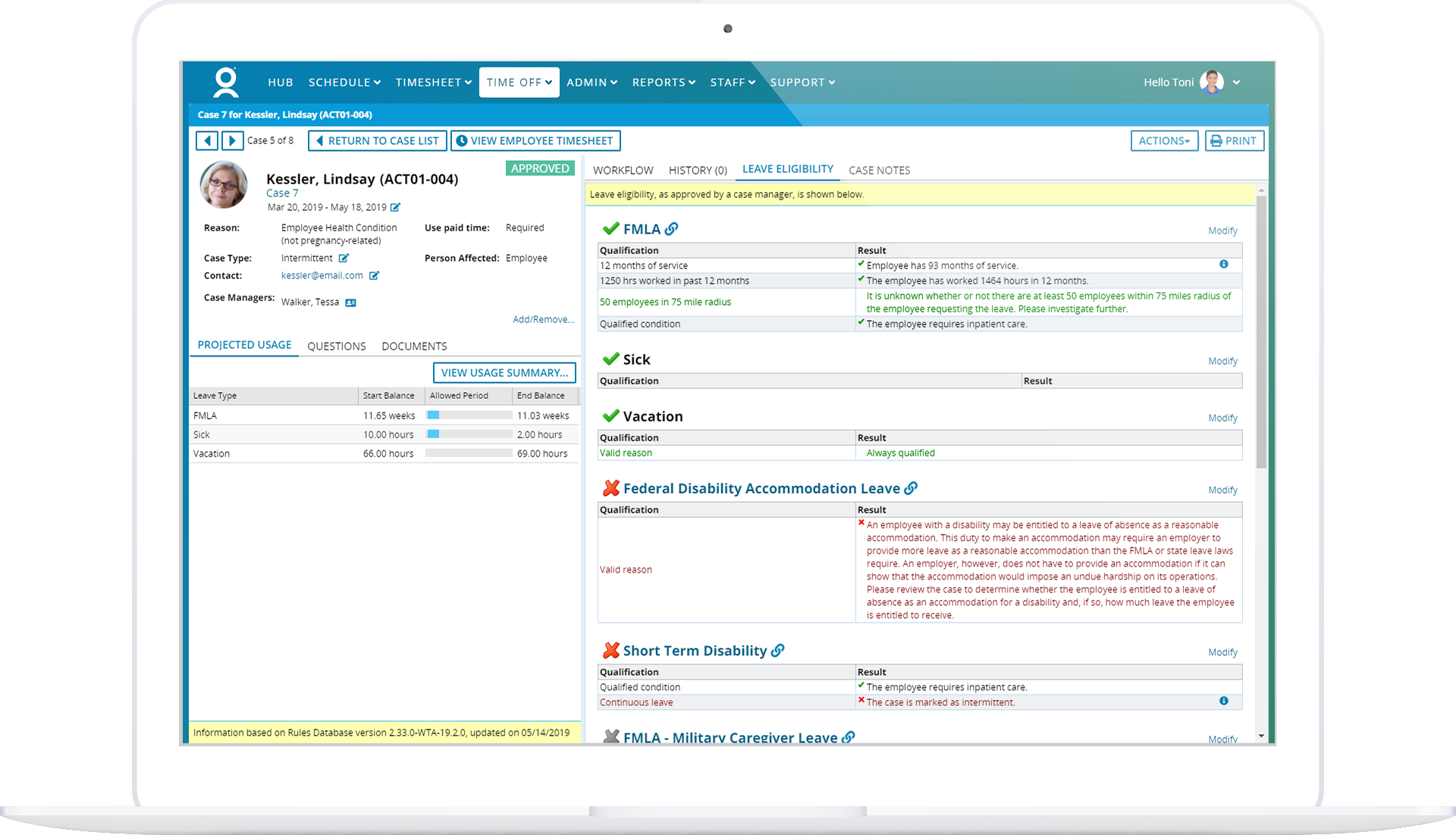Compliance Navigator
California Significantly Expands CFRA Leave


Paul Kramer
Director of Compliance
The California Family Rights Act (CFRA) presently requires employers with 50 or more employees within a 75-mile radius to grant 12 workweeks of unpaid leave during a 12-month period to employees with at least 1250 hours of service during the previous year if the leave is needed because of the employee’s serious health condition, to care for a covered family member with a serious health condition, or to bond with a new child. Effective January 1, 2021, however, the CFRA will be significantly expanded to include the following provisions:
More employers will be covered
The CFRA will apply to employers with as few as five employees and there will be no requirement that these 5 employees be employed within 75 miles of each other. This means that not only must businesses with as few as 5 workers grant 12 weeks of job-protected leave to eligible employees, but employees working in remote areas for larger companies will now also be eligible.
Leave may be taken to care for additional family members
The present law allows employees to use CFRA leave to care for their parent, child, spouse, or registered domestic partner who have a serious health condition. Under the amendment, CFRA leave may also be taken for the care of a grandparent, grandchild, or sibling with a serious health condition. The new law further clarifies that caring for a “child” includes caring for the child of a domestic partner, and removes a restriction that leave can only be used for a dependent child over age 18 if the child is incapable of self-care due to a disability.
There is a new reason for taking leave
The amendment imitated the FMLA by providing a new CFRA leave right for qualifying military exigencies. So come January 1, 2021, eligible employees will be able to use CFRA leave for a qualifying exigency related to the covered active duty or call to covered active duty of an employee’s parent, child, spouse, or domestic partner in the United States Armed Forces.
The two-parent rule is eliminated
Under current law, employers employing both parents need only grant 12 weeks of total CFRA leave to both employees regarding the birth, adoption, or foster care placement of a child. The new law eliminates this option, meaning employers will be required to provide up to 12 weeks of bonding leave to both parents—possibly at the same time.
The “key employee” exception is removed
The “key employee” exception currently allows employers to refuse reinstatement to salaried employees returning from CFRA leave who are within the highest paid 10 percent of the company’s employees within a 75-mile radius. The amended CFRA, however, will no longer include this exception.
What should California employers do now? Well first, companies employing 5 to 49 employees should review their leave policies and change them to coincide with the new CFRA leave requirements. Those employers already covered by the CFRA should update their handbooks to include the new definition of “family member,” the entitlement to military exigency leave, as well as other new provisions in the law. Finally, train the appropriate supervisory, human resource, and benefits personnel on managing this expanded leave entitlement.
Subscribe to The WorkForce Blog
Learn the art and science of maintaining productive, happy, engaged employees.
Discover More
Nucleus Insights from WorkForce Customers Research Note
Nucleus Research interviews WorkForce customers who validate why we’re ranked the #1 WFM enterprise vendor for 10 consecutive years.
Elevate Employee Experience: Checklist for Operational Leaders
Get the practical steps and technology functionalities operation leaders need to improve their employees’ work experiences.
Streamlining Complex Workforce Compliance Requirements Boosts Productivity
Discover how workforce compliance software helps EMEA organisations navigate complex legislation, enhance compliance and boost operational efficiency.




